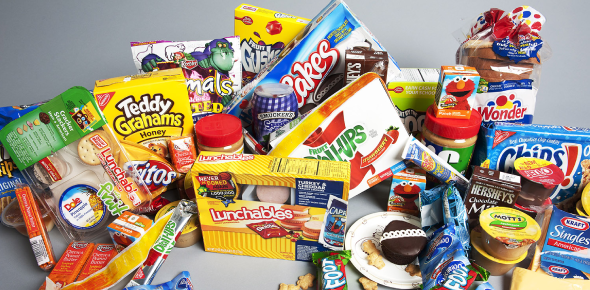Childhood obesity is not something that has plagued only a particular part of the world rather; it is branching to every nook and corner of the world. Unfortunately, we humans do not take anything seriously until it smacks us right into our faces and rattles our bones. The pandemic is just like a fine wine; the longer it is left alone, the more it ferments and the costlier it becomes; yet terrible in taste.
You might not be alarmed by the situation yet but the facts will startle you. The rise in the obesity rate is not one or twofold rather a tenfold increase in the last 40 years since 1975. To conduct the study, a team from the Non-Communicable Disease (NCD) Risk Factor Collaboration (NCD-RISC), led by researchers from Imperial College London and the World Health Organisation (WHO), analyzed 2,416 different existing studies that measured the height and weight of a total of 31·5 million 5- to 19-year-olds from 200 countries.
They found that from 1975 to 2016, the number of girls with obesity went from 5 million to 50 million, and the number of boys with obesity went from 6 million to 74 million. That doesn’t even include the 213 million children and adolescents that fell in the overweight range in 2016.
Few extra pounds have enough potential to make childhood miserable and a lifelong course that will eventually lead to low quality of life. Obese children might look bulky and healthy, but they are often malnourished lacking essential vitamins in their bodies, diagnosed with serious medical conditions.
Obesity is a life-threatening disease — diabetes, high blood pressure, high cholesterol, musculoskeletal disorders, hypertension, and cardiovascular disease all stem from obesity and completely deteriorating a child’s health. They face physical health problems and major setbacks mentally, including poor self-esteem due to depression, anxiety, and complexes related to their body image.
It is not merely the result of parent’s ignorance or the laziness and bad choices of our kids when it comes to food. The whole shift of system from processed food, beverages to the way our communities, workplaces operate to the activities we indulge ourselves into. The new transit system has just digitalized everything minimizing the mobility and physical activity restricting the new generation to their cellphones and computers.

The rise in obesity is like a ski slope; to stop this snowball effect, we have to closely monitor the symptoms, causes, and risk factors of the problem so that we can address it in a more professional way; involving all the stakeholders and relevant departments to bring changes on a systematic level.
How do you know if your child is obese?
You might not be able to know by the physical appearance of your child whether the child is obese or not. Child weight depends on the body frame and the fat percentage in the body, which vary at various growth stages.
Obesity is defined by Body Mass Index (BMI), which is a standard scale used worldwide to calculate overweight or obesity. BMI is calculated by taking weight concerning height; at or above the 95th percentile for obese children and teens of the same age and sex.
If you are worried about your child’s weight, it is better to consult a doctor rather than doing self-medications. The doctor will find BMI with other tests and consider your family’s weight-for-height history to see where your child land on the growth chart and will decide accordingly whether your child is obese or not.
What are the causes of obesity in children?
Not one factor alone but a combination of factors make a child overweight or obese.
- Diet: One of the leading factors of obesity in kids is regular intake of junk food consisting of more salt, more sugar, artificial sweeteners, and other hazardous ingredients. And brownie points to the desserts, candies, chocolates, and all the sodas and sugary drinks, posing life-threatening risks other than obesity.
- Lack of physical Exercise: Kids having a more sedentary lifestyle, spending more time on their tablets playing video games, or watching cartoons are more prone to gain weight than the kids who actively participate in physical activities, including bicycling and other outdoor sports.
- Genetic Factor: Your family history and genes also play a significant role in your kids’ weight. Suppose your child comes from a family of overweight people. He/she has significant chances of becoming obese.
- Psychological factors: Kids who don’t know how to express their emotions or when their parents do not address their emotions or problems or loved ones overreact to the situations. Few children tend to overeat when they feel under stress, anxiety, or fighting their boredom.
- Socioeconomic factors: Children being raised in neighborhoods lacking access to supermarkets often eat convenience foods, such as frozen meals, crackers, and cookies that result in obesity. Also, the lower-income communities lacking safe exercise spaces where physical activities are not encouraged, kids are likely to gain weight.
- Medications: Certain prescription drugs including prednisone, lithium, amitriptyline, paroxetine (Paxil), gabapentin (Neurontin, Gralise, Horizant), and propranolol (Inderal, Hemangeol) can cause obesity.

Risk factors for childhood Overweight
- Type 2 diabetes: Obese child faces four times the risk of developing type 2 diabetes that affects how the child uses glucose.
- High Blood Pressure and High Cholesterol: Around 70% of obese children have at least one CVD risk factor; they have higher systolic and diastolic blood pressure (BP). Plaque buildup in their arteries, causing them to narrow and harden, resulting in a stroke or heart attack later in life.
- Joint Pain: Obese children are often victimized to pain and sometimes injuries in the hips, knees, and back because of extra stress on hips and knees.
- Nonalcoholic fatty liver disease (NAFLD): This disorder causes the deposition of fatty acids in the liver leading to scarring and liver damage.
- Breathing problems: Asthma is prevalent in obese children. Also, sleep apnea, the disorder in which a child’s breathing repeatedly stops and starts during sleep.
- Emotional Complications: Overweight kids may experience bullying from their peers resulting in a loss of self-esteem and an increased risk of depression and anxiety
How can you prevent your child from being obese?
A child nutrition researcher at the Johns Hopkins Bloomberg School of Public Health, Sara Benjamin-Neelon, says
“The most important opportunity to prevent childhood obesity is within the first thousand days after birth, during that time, mothers should breastfeed as much as possible and especially avoid unhealthy food during an infant’s transition to solid foods, a formative time for a child’s metabolism.“
Other important factors that can help prevent weight gain in your child are :
- Be an example for your child
Make sure to adopt a healthy lifestyle as a parent performing all the physical exercises and confirming healthy eating, including greens and fruits, in your daily routine so that you might inspire your child towards a healthy lifestyle.
- Offer healthy food alternatives to your child
Try to replace all the junk food with alternative healthy choices, including air-popped popcorn without butter, fruits with low-fat yogurt, baby carrots with hummus, or whole-grain cereal low-fat milk. Try new recipes and put some effort into making food appealing for kids – the senses are of the utmost importance for kids.
- Incorporate new foods
It might be difficult for you to make your child get used to any new food. But don’t be discouraged; kids take time in acceptance. Expose new food to your child in different ways, let them know about the food’s nutritious value.
- Be conscious of your child’s sleep schedule
Make sure that your child completes the whole 8 hr. sleep cycle at every cost. Lack of sleep can cause hormonal imbalance resulting in increased appetite.
- Use Non-Reward Technique
Offering candy or anything junk as a reward is a bad idea. Stop it now!
With every passing day, the situation is getting worse- a study led by the World Obesity Federation projected the number of obese/ overweight children worldwide to grow by 100 million by 2030. Organizations like WHO, Mayor Bloomberg, former First Lady Michelle Obama, the Obesity Action Coalition, the Obesity Society, the European Association for the Study of Obesity (EASO) are trying their best to make people aware and bring changes on a systematic level still stats are a clear indication that we have to deal this matter with more responsibility.
Parents should make sure to take their kids to a child specialist once a year for medical examination. And the government should also take sufficient actions, apply taxes on sugar-sweetened beverages (SSB), and improve food labeling, manufacturers reducing the amount of sugar, and school lunch programs.
Also, read:
Mind over Food; the Psychology of Eating

Sabeeka Zafar is a Bioinformatician-to-be with a passion to be a significant part of the great revolution in the near future in the field of Bioinformatics specifically and that of Science generally. Sabeeka is a social activist, enjoys working with people for the betterment of the society and loves to read and to write.

